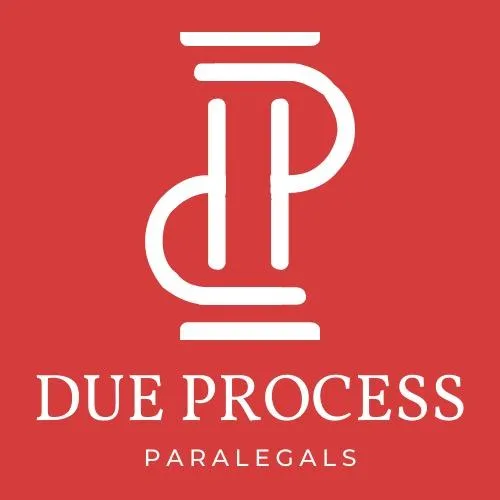CASE STUDIES
Unveiling Legal Success: Delve into Case Studies with Our Comprehensive Blog Review - Your Source for In-Depth Insights into Real-World Legal Outcomes and Strategies.

No Dismissal Means No Quiet Title Relief: Davis v. Wilmington Savings Fund Society, FSB
In the fiery world of high stakes litigation, securing a dismissal can feel like a major win. But parties should be wary of declaring complete victory before appeals are exhausted. A recent Second Department decision makes clear that no dismissal truly exists until the chance for appeals has passed.
In Davis v. Wilmington Savings Fund Society, FSB, 2023 NY Slip Op 04361 [2023], the appellate court affirmed dismissal of a quiet title claim because of a still pending related foreclosure case. Plaintiff Gregory Davis brought the quiet title action under RPAPL 1501(4) to discharge a mortgage held by Wilmington Savings as time-barred.
The plot thickens when we consider Davis previously defaulted on the mortgage in 2006. In 2007, Wilmington commenced an action against Davis, but the action was voluntarily discontinued in 2009. In 2015, Wilmington Savings commenced a new action against Mr. Davis for foreclosure in 2015.
However, Mr. Davis did not timely appear and submit an answer to the complaint was defaulted by the Court. However, Mr. Davis’ counsel very tactically required Plaintiff to conduct a hearing in damage in which Wilmington was required to produce witnesses.
Plaintiff made the meritless argument that Davis was not allowed to contest the Plaintiff’s prima facie case at this hearing in damages because he was in default without recognizing Mr. Davis was allowed to challenge the evidence the Plaintiff produced to demonstrate that it had a right to foreclosure.
Wilmington at its witnesses failed miserably. Judge Dear issued a ruling stating that “Plaintiff failed to meet its prima facie burden establishing entitlement to a judgment of foreclosure…Therefore, this foreclosure action must be dismissed.”
After the trial in that case, Justice Genovesi issued a decision dismissing the foreclosure action. Wilmington Savings filed a notice of appeal, but the Second Department granted Davis's motion to dismiss the appeal since "no appeal lies from a decision."
Armed with the dismissed appeal, Davis struck back with the instant quiet title suit. His complaint alleged the statute of limitations expired on the mortgage debt, rendering the mortgage unenforceable.
Wilmington Savings moved to dismiss the quiet title case under CPLR 3211(a)(7), arguing the foreclosure action was still pending since no final dismissal existed yet. Davis opposed, pointing to the dismissed foreclosure appeal.
But the trial court sided with Wilmington Savings, and the Second Department agreed: "the foreclosure remains pending and unresolved. Under settled law, this precludes quiet title relief, which requires the related foreclosure case be completely finished." As Davis himself argued, the foreclosure decision was non-final and non-appealable. Wilmington Savings still had time to appeal once a formal order or judgment issued and a notice of entry was served on it.
Lessons Learned...
Several key lessons emerge from this cage match:
- No appeal, no finality. The Second Department dismissed Wilmington's premature appeal from a mere decision. But importantly, the court never issued an order or judgment effectuating dismissal of the foreclosure case. So Wilmington's window to appeal as of right never started running. The foreclosure thus remained "pending and unresolved."
- Premature celebrations backfire. Davis succeeded in dismissing Wilmington's appeal. But his subsequent quiet title suit was hasty. The foreclosure dismissal wasn't final without an order or judgment. Declaring total victory before appeals are exhausted can come back to haunt you.
- Consistency critical. Davis took contradictory positions when convenient. He called the foreclosure decision non-final to dismiss the appeal. Then he claimed it was final to show the mortgage time-barred. But judicial estoppel prevents such shifting stances. Pick a lane and stay in it.
The takeaway? Don't assume you've won until the last appeal is decided. Acting otherwise could turn a non-final decision into a final loss.
Luckily for Mr. Davis, it is not a total loss. Plaintiff will likely appeal the final decision of the Supreme Court in the second foreclosure action once the notice of entry of Judge Dear’s decision is forwarded to the Plaintiff. However, Wilmington’s foreclosure action collapsed at trial and the Plaintiff’s ability to revive their very flawed action is probably impossible.
Plaintiff’s 2015 action was time-barred in the first place and Mr. Davis will no doubt with competent counsel be keenly observant of the requirement to timely appear and answer with a motion to dismiss the subsequent action as CPLR 205-A will not save Wilmington’s next action.
Here is a table of the key case citations in the Appellate Court’s decision.
Visit us on:

©2023 Due Process Paralegals All Rights Reserved.
The content, design, and graphics on this website are protected by copyright law. Unauthorized reproduction or distribution of any materials on this website without the prior written permission of Due Process Paralegals is strictly prohibited.
All trademarks, service marks, and trade names displayed on this website are the property of Due Process Paralegals or their respective owners. Use of any trademarks, service marks, or trade names on this website without the express written consent of Due Process Paralegals or the respective owners is prohibited.